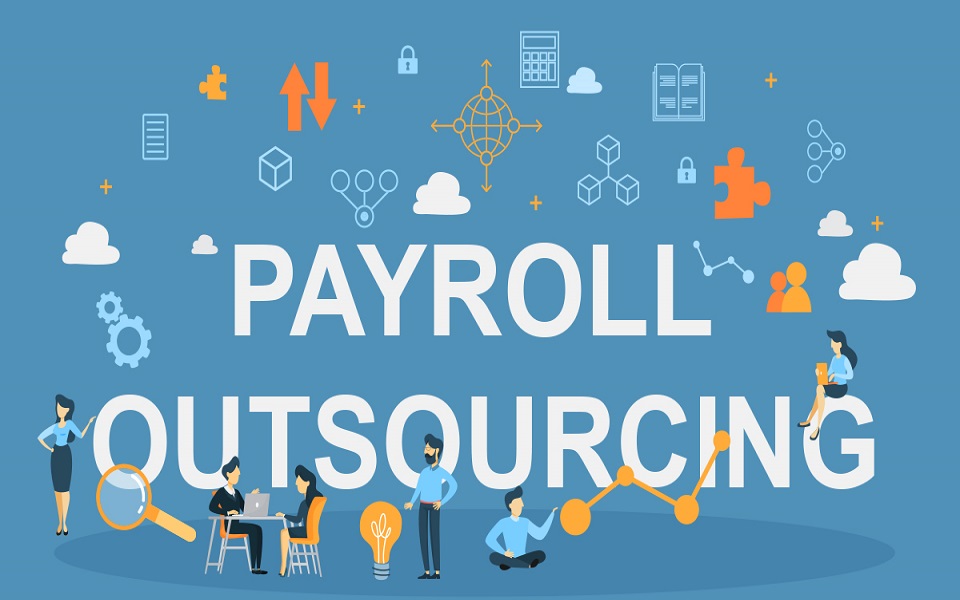In an era of rapid technological change, shifting labor laws, and mounting expectations from employees and regulators alike, payroll is no longer just a back-office function. For many businesses in 2025, outsourcing payroll isn’t a luxury—it’s essential. Here’s why more companies are turning to external payroll experts, what the benefits are, what to watch out for, and how to choose the right partner.

1. The Changing Landscape of Payroll
- Growing complexity in regulation and compliance: As laws around wages, taxes, employee classification, and pay transparency evolve, staying compliant has become more demanding. Thomson Reuters Tax+2ADP UK+2
- Labor skills shortages: Many organizations report difficulty hiring payroll experts. Outsourcing can bypass these shortages. ADP UK+1
- Remote/hybrid work & multi-jurisdiction payrolls: When you have employees across different states or countries, you have multiple tax regimes, different employment laws, and varied payroll frequency expectations. Managing all this in-house can be tricky. Outsourcing can simplify this. G2 Learn Hub+2Thomson Reuters Tax+2
- Technology & automation: 2025 is seeing more adoption of AI, cloud-based systems, real-time analytics, and self-service portals that allow employees to access pay slips, deductions, etc. These tools require specialized skills and infrastructure. Thomson Reuters Tax+3Paychex+3Digital Minds BPO+3
2. Key Benefits of Payroll Outsourcing
Here are some of the advantages for businesses that outsource payroll functions in 2025:
| Benefit | What it means in practice |
|---|---|
| Cost savings | Outsourcing can reduce overhead: costs related to in-house staff, software, training, and maintaining updated systems. Digital Minds BPO+2HR University+2 |
| Accuracy & fewer errors | Specialized providers are better equipped to avoid mistakes in calculations, misclassifications, or tax filings. Payroll errors can damage morale or result in fines. Milestone+2Digital Minds BPO+2 |
| Time efficiency | Freed from day-to-day payroll administration, internal teams can focus on core strategic tasks. TekWissen.com+2Paychex+2 |
| Improved compliance and risk management | Outsourcing firms tend to stay on top of ever-changing regulations; they often have dedicated legal/tax compliance resources. Reduces risk of penalties. Thomson Reuters Tax+2ADP UK+2 |
| Scalability & flexibility | As your workforce (or the complexity of your payroll) grows or changes—more remote employees, multiple locations—it’s easier to scale up with an outsourcing partner. Digital Minds BPO+2HR University+2 |
| Access to latest technology | Outsourcers invest in things like AI-assisted error checking, analytics dashboards, cloud systems, employee self-service portals. For smaller companies, building this internally can be expensive. Paychex+2Digital Minds BPO+2 |
| Better employee experience & trust | Accurate, timely pay; transparent payslips; self-service options—all contribute to better satisfaction and less frustration among employees. ADP UK+1 |
3. What the Data Shows
Here are some recent statistics/trends that underscore why payroll outsourcing is increasingly being adopted:
- The payroll outsourcing market is expected to grow by US$6.15 billion by 2025. Digital Minds BPO+1
- 25% of employees report having received paychecks with errors; nearly half (49%) might leave their job after just two payroll mistakes. Digital Minds BPO+1
- Businesses operating in multiple geographies are far more likely to outsource payroll. Among companies with 2-5 country operations, less than one third keep payroll fully in-house. SelectSoftware Reviews+1
- 58% of large organizations are exploring AI-driven payroll solutions; 50% are automating manual payroll processes. ADP UK+1
4. Potential Challenges & How to Mitigate Them
Outsourcing isn’t without its pitfalls. To make it work, businesses need to be aware of what could go wrong and how to avoid common issues.
- Data security and privacy: Payroll involves very sensitive personal and financial data. Be sure your provider has strong security measures, certifications, audits, and clear data-ownership agreements.
- Loss of direct control: Some companies feel uneasy relinquishing control of payroll tasks—they must trust that the provider adheres to timelines, accuracy, and compliance. Clear SLAs (Service Level Agreements), regular reviews, and transparency help.
- Integration issues: Payroll often interacts with HR, accounting, finance, benefits management systems. If your provider can’t integrate smoothly, there may be duplications, errors, or delays.
- Hidden costs: Sometimes contracts have unexpected fees (onboarding, data setup, additional reporting). Always examine pricing structure.
- Change management: Moving payroll from in-house to outsourced needs careful transition planning: mapping out processes, ensuring staff are trained, ensuring consistency during the switch-over.
5. How to Choose the Right Payroll Outsourcing Partner
Here are factors to evaluate when picking a provider in 2025:
- Reputation and experience: Look for providers with proven track records in your industry and in your regulatory jurisdictions.
- Technology capabilities: AI/error detection, cloud-based systems, employee self-service, real-time analytics.
- Compliance expertise: They should stay updated on local, regional, national payroll laws; have strong audit records and liability support.
- Security and data protection: Encryption, secure data centers, privacy policies, disaster recovery, etc.
- Scalability & flexibility: Can the provider handle your growth (more employees, more locations)? Can they adapt to changes (e.g. remote work, changing pay frequency)?
- Transparent pricing & SLAs: Clear contract terms, well-defined deliverables, response times, resolution processes for errors.
- Customer service & support: Dedicated contact(s), timely responses, good reputation for handling issues.
6. Conclusion
As we move through 2025, payroll is becoming a strategic function, not just an administrative burden. Outsourcing payroll offers a host of advantages: cost savings, efficiency, better compliance, happier employees. For many businesses—especially those scaling fast, operating across locations, or under pressure with regulation and talent shortages—payroll outsourcing isn’t just beneficial; it’s essential.
If you’re considering outsourcing payroll, start with a needs audit: how complex is your payroll? How many jurisdictions are involved? What internal resources (staff, software, knowledge) do you have? Then, evaluate providers carefully. Getting this right could free up your time and energy for what really matters: growing your business.



Share this Article